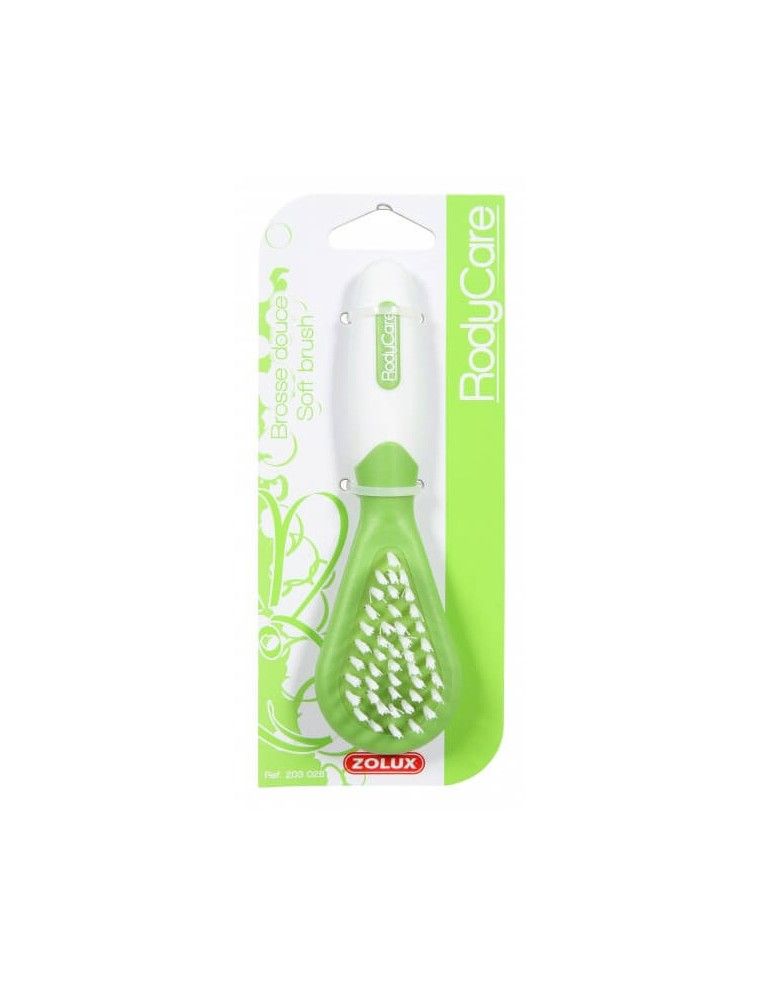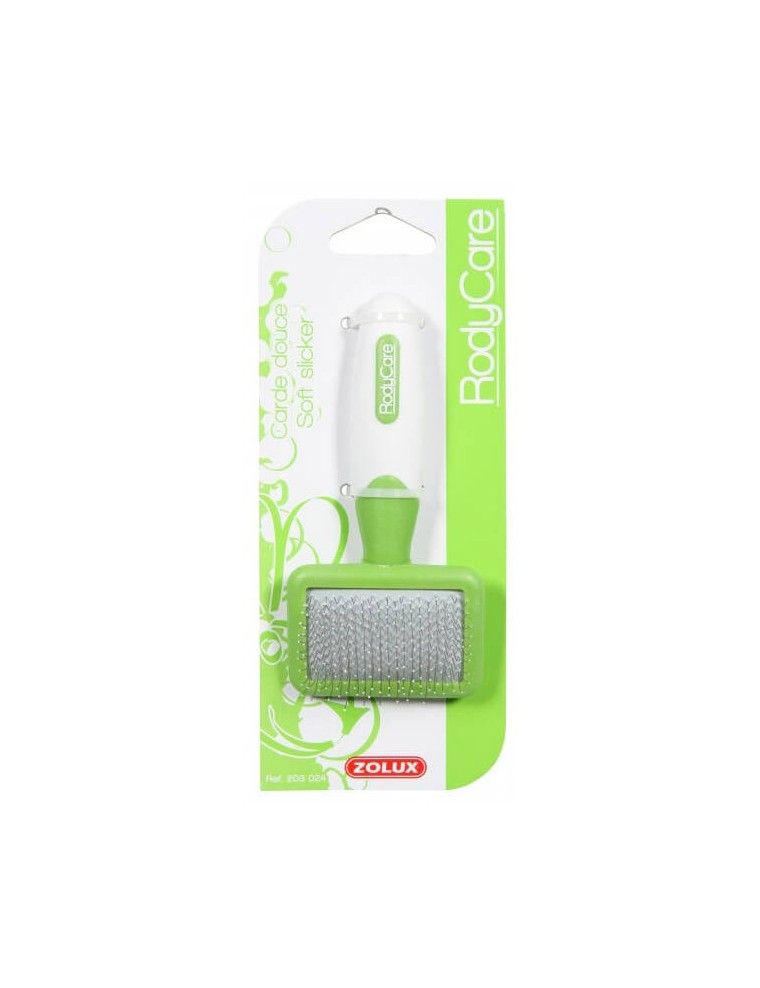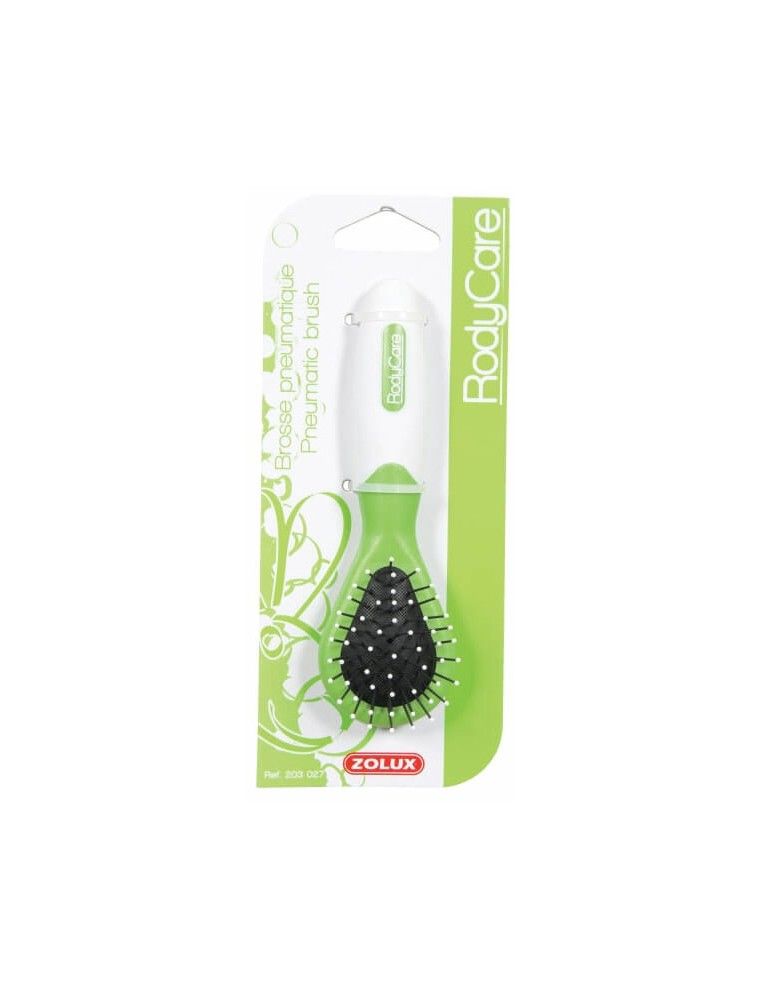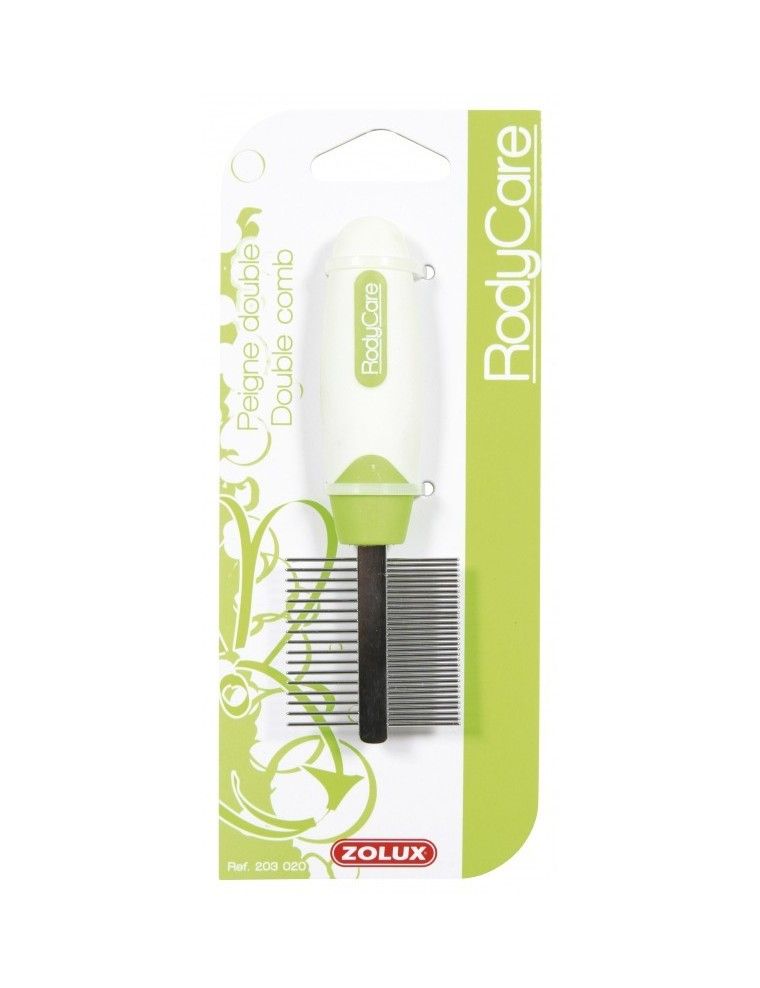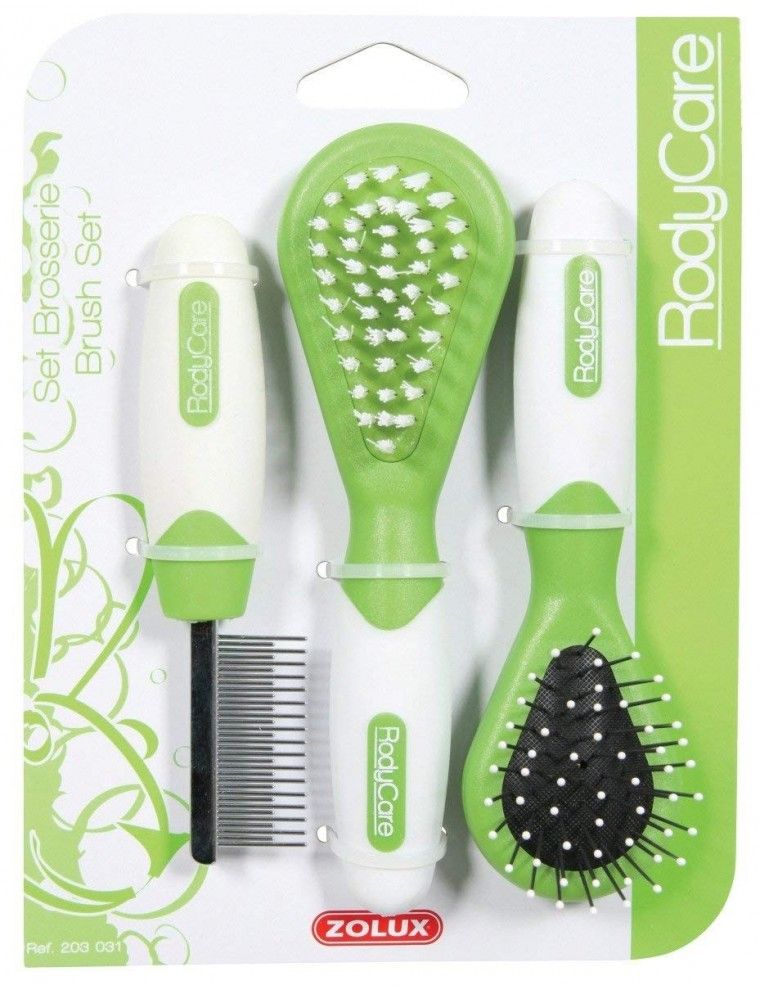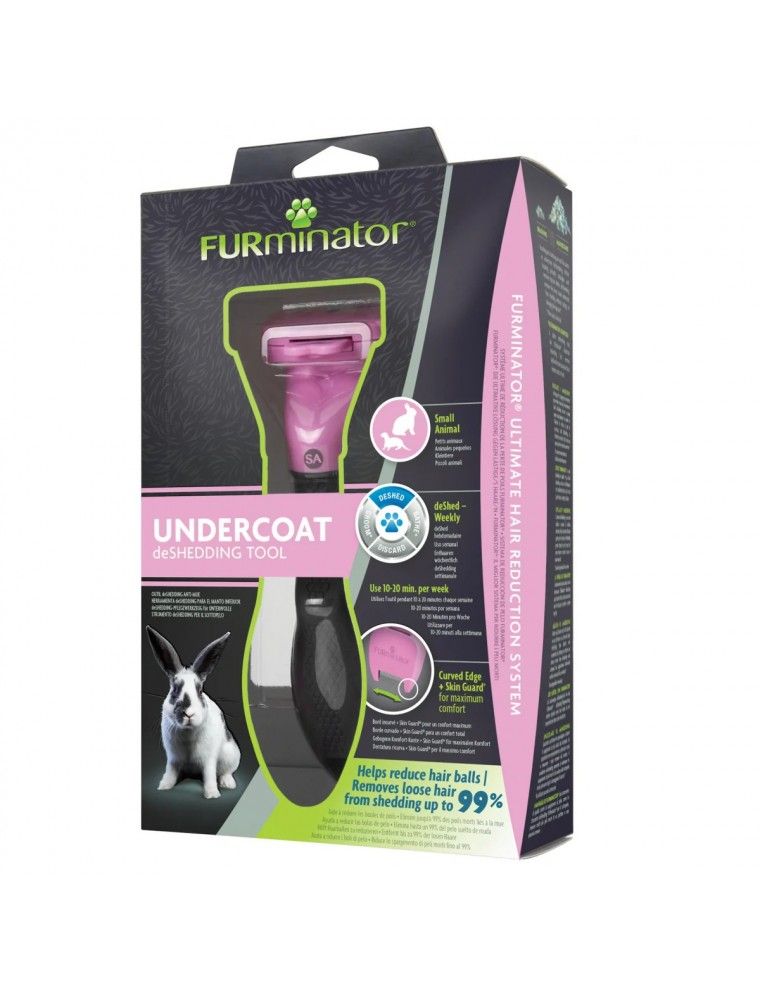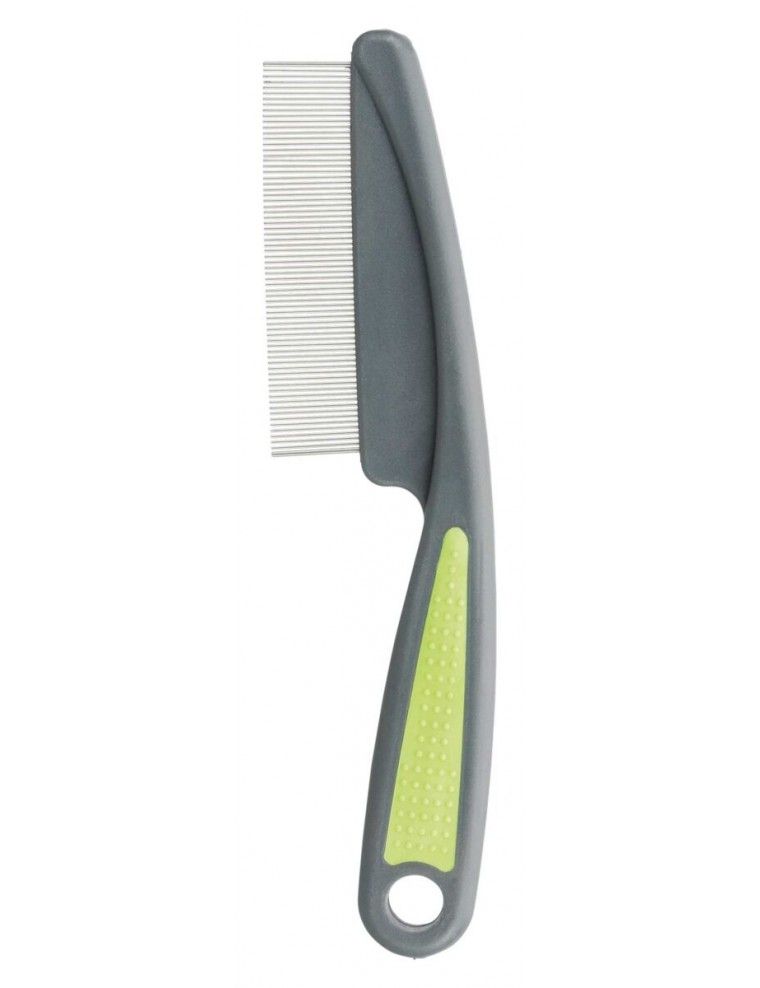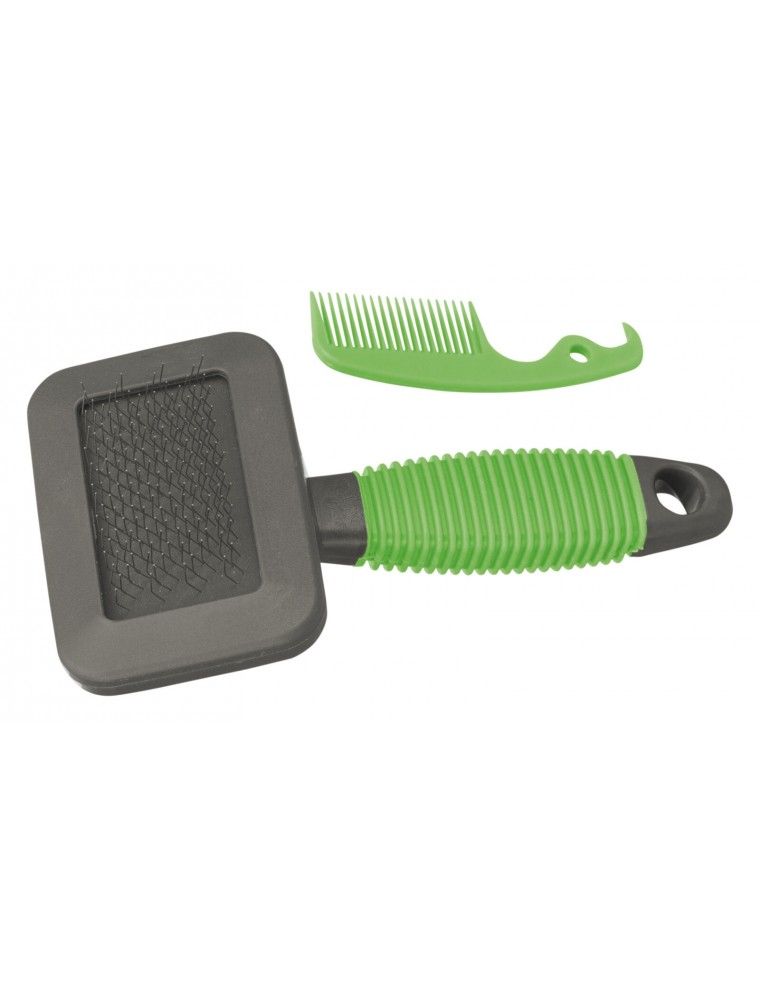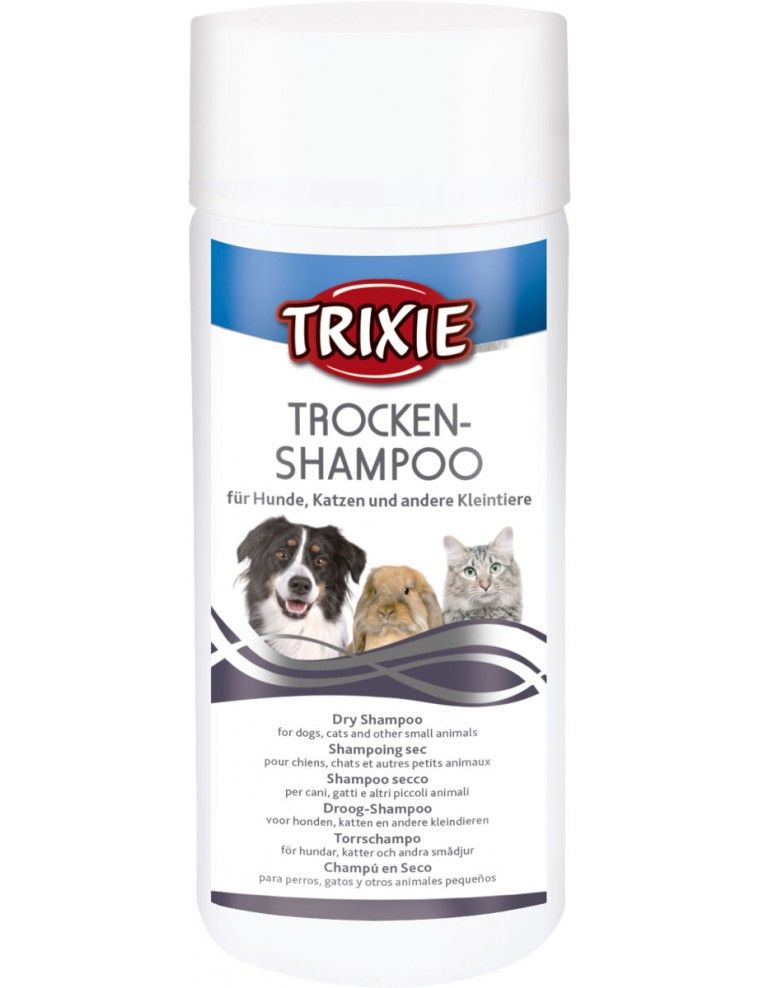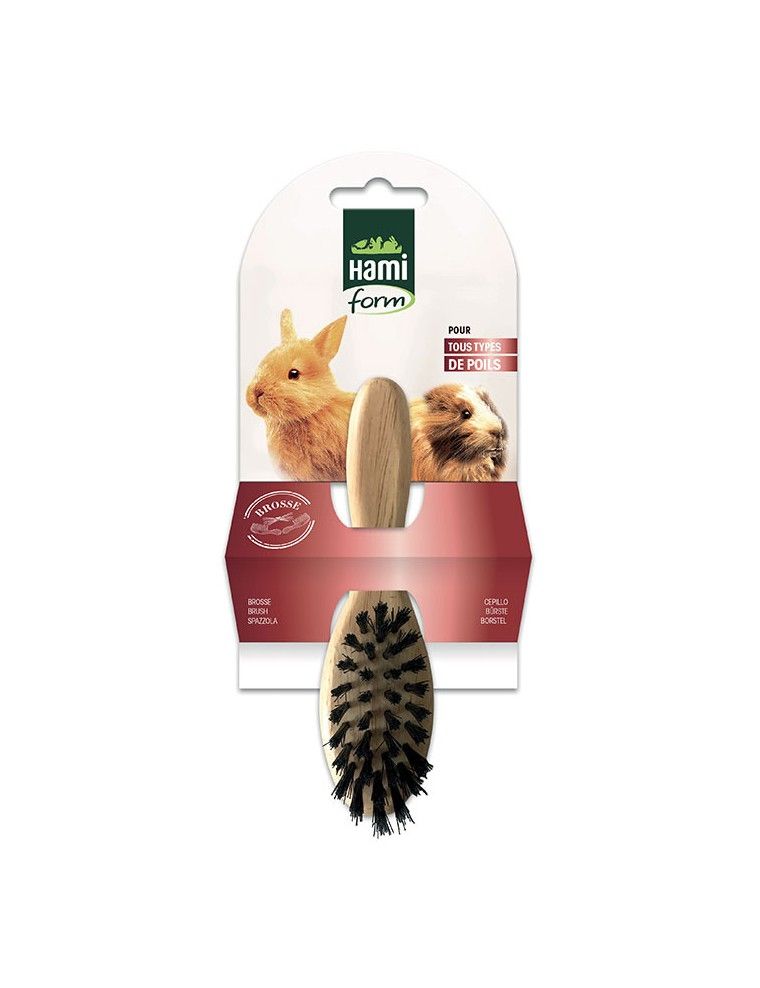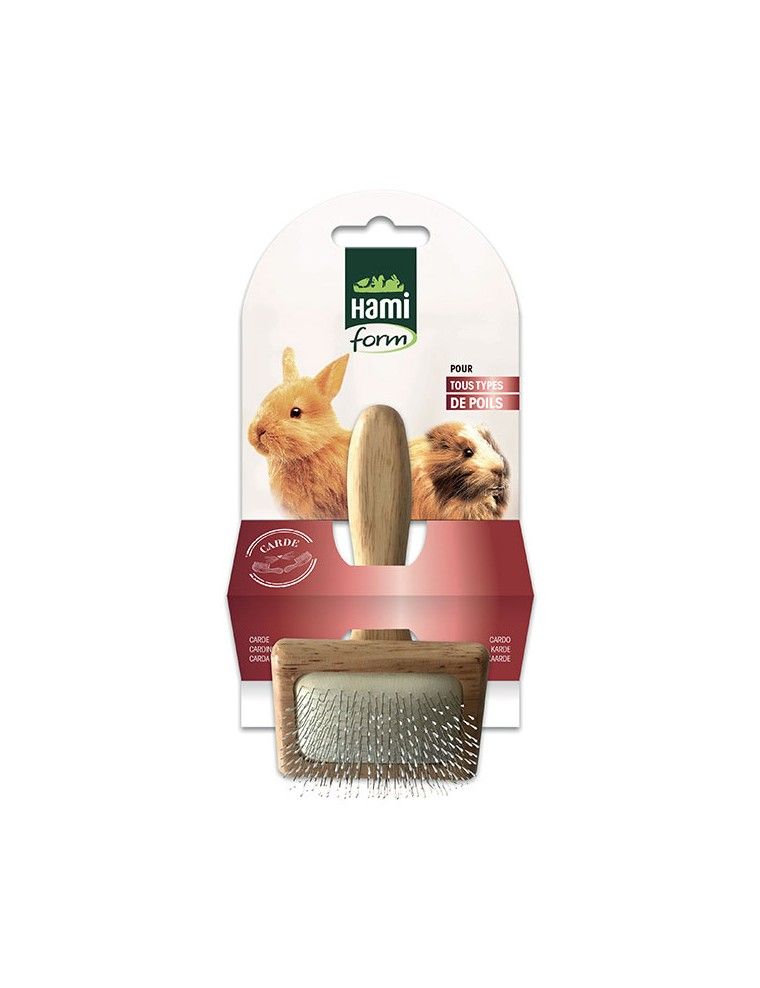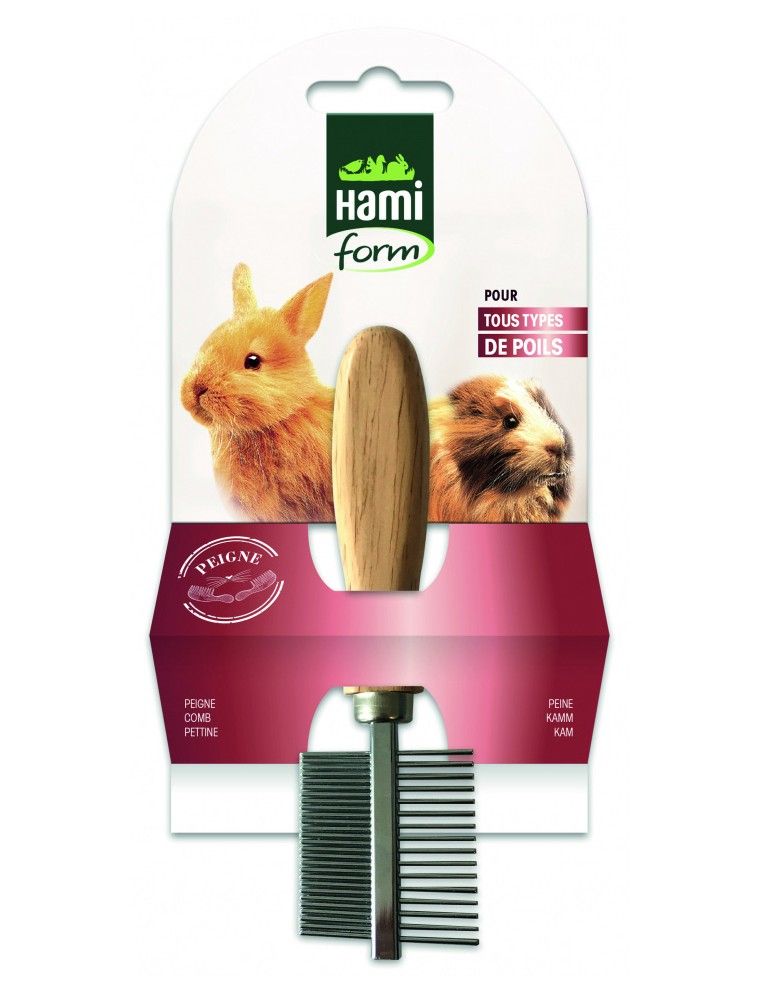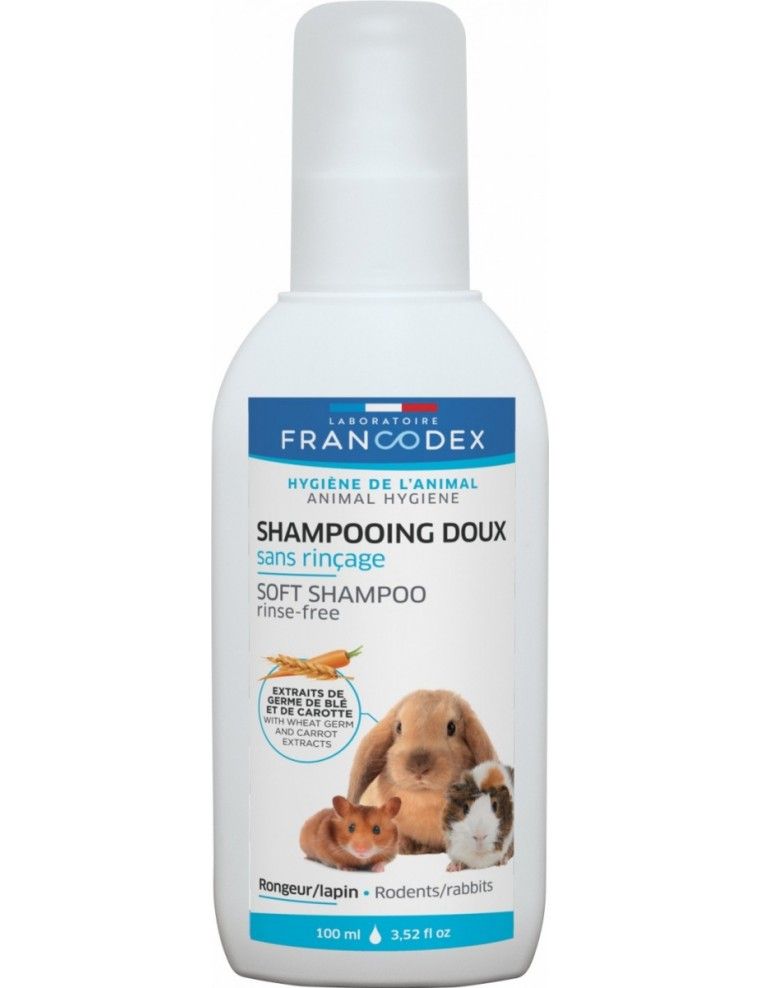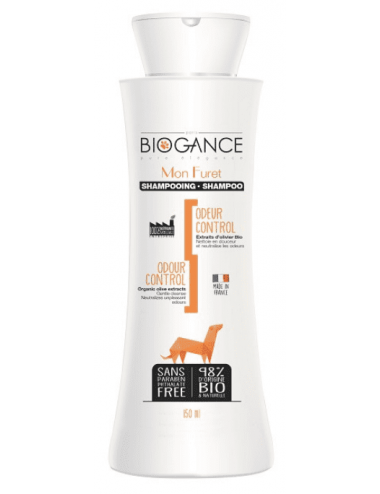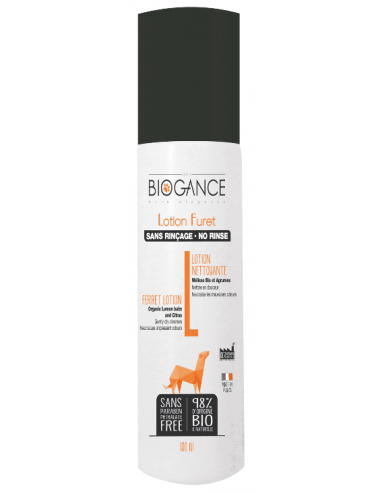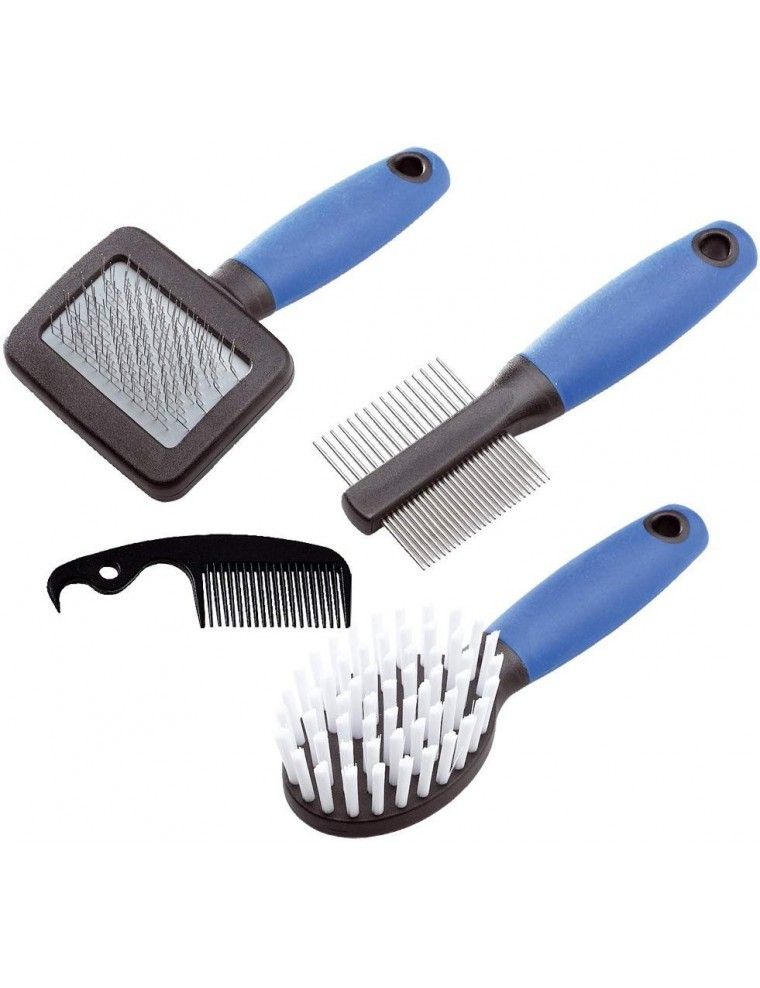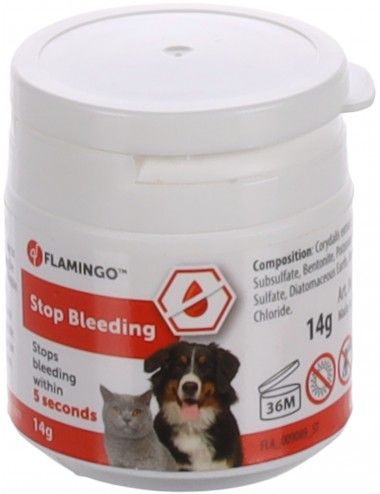- in replenishment
Skin and Coat Ferret
Skin and Coat: Natural Care for Your Ferret
At Le Petit Rongeur, we know that the health of your ferret's skin and coat is essential for its well-being. This is why we have carefully selected products from the Francodex , Hamiform , and Trixie brands, designed to meet the specific needs of these dynamic little animals. Maintaining a shiny coat and healthy skin requires appropriate care, avoiding frequent baths which can dry out their delicate skin. However, when bathing becomes necessary, it is essential to use gentle shampoos and follow simple precautions to avoid irritation.
Tips for a Glowing Coat and Healthy Skin
Maintaining your ferret's coat and skin should not be taken lightly. Baths, although not recommended, may be necessary in certain situations. In this case, choose a mild, fragrance-free shampoo, specially formulated for ferrets or kittens, and make sure the water is at a pleasant temperature, without ever wetting your pet's head to avoid the risk of otitis. . Drying should be careful, using a soft towel or a hair dryer on cold mode, to avoid any cooling or burning. Regular brushing, for its part, is essential to remove dead hair and prevent the formation of hairballs which can harm your companion's digestion. This gesture of care also turns into a special moment of complicity between you and your ferret, strengthening your bond and contributing to its psychological well-being.
Seasonal Shedding: A Natural Cycle to Accommodate
Ferrets experience two shedding periods during the year, requiring special attention to their coat. Brushing then becomes more than essential to help remove dead hair and promote healthy coat renewal. During these periods, it is also advisable to enrich your ferret's diet with beneficial supplements such as brewer's yeast or salmon oil, known for their benefits on coat quality. On the other hand, bathing remains a solution to be considered only in exceptional cases. It is important to remember that washing your ferret will not permanently eliminate odors and could even increase the production of sebum, responsible for its characteristic smell. Regular maintenance of its habitat and accessories is the best approach to managing odors while preserving the health of its skin and coat.
Choosing the Right Products for Skin and Coat Care
At Le Petit Rongeur, we offer a range of superior quality products for the care of your ferret's skin and coat, combining gentleness and effectiveness. Our Francodex , Hamiform , and Trixie selections offer solutions adapted to every need: from gentle shampoos to leave-in cleaning gels, including nutritional supplements to enhance the natural beauty of your ferret's coat. Each product is chosen for its gentle formula, respectful of the delicate physiology of your companion, guaranteeing quality care with total respect for its nature.
Skin and Coat
Skin and Coat: Natural Care for Your Ferret
At Le Petit Rongeur, we know that the health of your ferret's skin and coat is essential for its well-being. This is why we have carefully selected products from the Francodex , Hamiform , and Trixie brands, designed to meet the specific needs of these dynamic little animals. Maintaining a shiny coat and healthy skin requires appropriate care, avoiding frequent baths which can dry out their delicate skin. However, when bathing becomes necessary, it is essential to use gentle shampoos and follow simple precautions to avoid irritation.
Tips for a Glowing Coat and Healthy Skin
Maintaining your ferret's coat and skin should not be taken lightly. Baths, although not recommended, may be necessary in certain situations. In this case, choose a mild, fragrance-free shampoo, specially formulated for ferrets or kittens, and make sure the water is at a pleasant temperature, without ever wetting your pet's head to avoid the risk of otitis. . Drying should be careful, using a soft towel or a hair dryer on cold mode, to avoid any cooling or burning. Regular brushing, for its part, is essential to remove dead hair and prevent the formation of hairballs which can harm your companion's digestion. This gesture of care also turns into a special moment of complicity between you and your ferret, strengthening your bond and contributing to its psychological well-being.
Seasonal Shedding: A Natural Cycle to Accommodate
Ferrets experience two shedding periods during the year, requiring special attention to their coat. Brushing then becomes more than essential to help remove dead hair and promote healthy coat renewal. During these periods, it is also advisable to enrich your ferret's diet with beneficial supplements such as brewer's yeast or salmon oil, known for their benefits on coat quality. On the other hand, bathing remains a solution to be considered only in exceptional cases. It is important to remember that washing your ferret will not permanently eliminate odors and could even increase the production of sebum, responsible for its characteristic smell. Regular maintenance of its habitat and accessories is the best approach to managing odors while preserving the health of its skin and coat.
Choosing the Right Products for Skin and Coat Care
At Le Petit Rongeur, we offer a range of superior quality products for the care of your ferret's skin and coat, combining gentleness and effectiveness. Our Francodex , Hamiform , and Trixie selections offer solutions adapted to every need: from gentle shampoos to leave-in cleaning gels, including nutritional supplements to enhance the natural beauty of your ferret's coat. Each product is chosen for its gentle formula, respectful of the delicate physiology of your companion, guaranteeing quality care with total respect for its nature.
- 2 in stock
- 3 in stock
- in replenishment
- in replenishment
- in replenishment
- 3 in stock
- in replenishment
- 2 in stock
- 6 in stock
- 6 in stock
- 4 in stock
- 1 in stock
- in replenishment
- 7 in stock
- in replenishment
- in replenishment
Questions / Réponses
Pour un pelage sain, nourrissez votre furet avec une alimentation équilibrée riche en protéines animales. Brossez régulièrement son pelage pour enlever les poils morts et réduire la mue. Les bains ne doivent pas être fréquents, car ils peuvent dessécher la peau et augmenter la production d'huiles.
Les furets ne nécessitent que quelques bains par an, sauf s'ils se salissent beaucoup. Baigner un furet trop souvent peut retirer les huiles naturelles de sa peau, causant sécheresse et démangeaisons.
Utilisez des shampooings doux spécialement conçus pour les furets ou pour les animaux à peau sensible. Évitez les shampooings pour humains, qui peuvent être trop agressifs pour leur peau.
Si votre furet a la peau sèche, réduisez la fréquence des bains et envisagez d'ajouter un supplément d'acides gras oméga-3 à son alimentation. Consultez un vétérinaire pour des recommandations spécifiques et pour exclure des conditions sous-jacentes.
Utilisez des produits antiparasitaires spécifiquement formulés pour les furets ou approuvés par un vétérinaire. Évitez d'utiliser des produits destinés aux chiens et aux chats, car certains peuvent être toxiques pour les furets.
Une perte de poils peut être normale durant les périodes de mue au printemps et à l'automne. Cependant, une perte excessive de poils ou des zones chauves peuvent indiquer un problème de santé sous-jacent, nécessitant une visite chez le vétérinaire.
Une bonne hygiène, une alimentation équilibrée, et un environnement propre sont essentiels pour prévenir les problèmes de peau. Examinez régulièrement la peau et le pelage de votre furet pour détecter tout signe inhabituel comme des rougeurs, des démangeaisons, ou des pertes de poils.
Les démangeaisons constantes peuvent être le signe de parasites, d'allergies, ou de conditions cutanées. Consultez un vétérinaire pour un diagnostic et un traitement appropriés. Ne tentez pas de traiter les démangeaisons avec des produits non approuvés pour les furets.
En général, il n'est pas nécessaire de couper le poil d'un furet, sauf pour des raisons médicales. Leur fourrure les protège et régule leur température corporelle. Un toilettage régulier suffit à maintenir leur pelage en bon état.
Oui, les furets peuvent développer des pellicules en raison de la peau sèche, de mauvaises conditions de bain, ou de problèmes de santé. Si vous remarquez des pellicules, examinez les conditions de vie et l'alimentation de votre furet et consultez un vétérinaire pour écarter les causes médicales.
